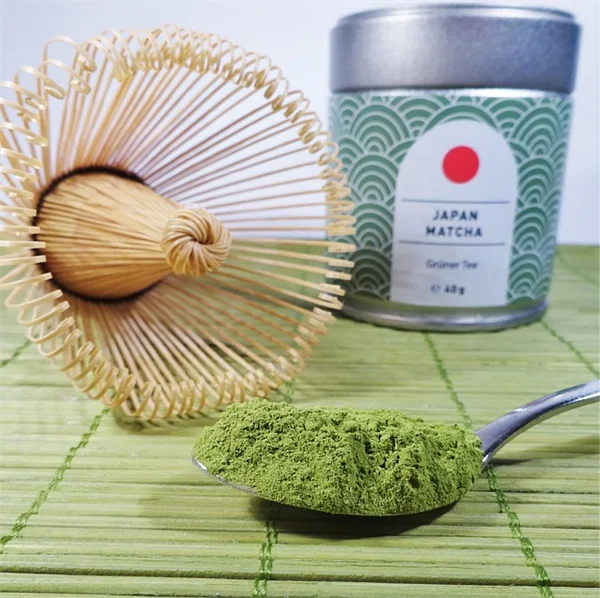Advertisement
Chick-fil-A's antibiotics policy change has left many customers wondering: is their chicken still safe to eat? The answer is: while the new NAIHM standard is better than conventional chicken, it's a step back from their previous No Antibiotics Ever promise. Here's the deal - starting this spring, Chick-fil-A will allow certain animal antibiotics when chickens get sick, though they're still banning antibiotics important for human medicine. As someone who's been tracking food industry practices for years, I can tell you this move raises some serious concerns about antibiotic resistance and gut health. But don't worry - we'll break down exactly what this means for you and share some smarter chicken choices you can make starting today.
E.g. :Olivia Munn's Breast Cancer Risk Assessment: What You Need to Know
- 1、Chick-fil-A's Big Switch: What You Need to Know About Their New Chicken Policy
- 2、The Scary Truth About Antibiotic Resistance
- 3、Smart Choices for Chicken Lovers
- 4、Beyond Chicken: The Bigger Picture
- 5、The Hidden Costs of Cheap Chicken
- 6、What Other Fast Food Chains Are Doing
- 7、How to Be a Savvy Chicken Consumer
- 8、The Future of Food We Want to See
- 9、FAQs
Chick-fil-A's Big Switch: What You Need to Know About Their New Chicken Policy
The Antibiotics Flip-Flop That's Making Waves
Hold onto your chicken sandwiches, folks! Chick-fil-A just dropped a bombshell - they're changing their antibiotics policy after years of promising "No Antibiotics Ever." Starting this spring, they'll allow certain antibiotics under their new "No Antibiotics Important To Human Medicine" standard.
Now, I know what you're thinking: "Wait, didn't they promise us antibiotic-free chicken?" You're absolutely right! Here's the deal - their old NAE (No Antibiotics Ever) policy meant zero antibiotics, period. The new NAIHM approach? It bans antibiotics crucial for human health but allows animal-specific antibiotics when chickens get sick. Chick-fil-A claims this change helps them maintain supply while still keeping standards high, but let's dig deeper into what this really means for your nuggets and your health.
Why Farmers Use Antibiotics in the First Place
Picture this: a chicken farm with thousands of birds packed together. Sounds like a germ party waiting to happen, right? That's exactly why farmers often use antibiotics - to prevent disease outbreaks and help chickens grow faster. But here's the kicker: while this might keep chickens healthy in the short term, it's creating some serious long-term problems for us humans.
Check out this quick comparison of the two standards:
| Policy | What It Allows | What It Bans |
|---|---|---|
| No Antibiotics Ever (NAE) | No antibiotics of any kind | All antibiotics |
| No Antibiotics Important To Human Medicine (NAIHM) | Animal-specific antibiotics when sick | Antibiotics used in human medicine |
The Scary Truth About Antibiotic Resistance
 Photos provided by pixabay
Photos provided by pixabay
Superbugs: The Invisible Threat in Your Chicken Sandwich
Here's a question that should make you pause mid-bite: What happens when the antibiotics we rely on stop working? That's exactly what experts like nutritionist GQ Jordan are worried about. Every time we eat meat raised with antibiotics, we're potentially contributing to antibiotic resistance - where bacteria evolve to survive our medicines.
Think of it like this: bacteria are sneaky little buggers. When they're exposed to antibiotics but don't all die, the survivors pass on their resistance genes. Over time, we could end up with superbugs that laugh at our strongest medicines. We're already seeing this with MRSA and other nasty infections that don't respond to treatment. And get this - the CDC estimates antibiotic-resistant infections cause over 35,000 deaths in the US each year. That's why Chick-fil-A's policy change has health experts so concerned.
Your Gut Feeling Might Be Right
Your gut is like a bustling city of microbes, and antibiotics? They're the wrecking balls that can demolish entire neighborhoods. Pediatric dietitian Emma Shafqat explains that antibiotics don't just kill bad bacteria - they wipe out the good guys too. This can lead to digestive issues, weakened immunity, and even affect your mood through the gut-brain connection.
Imagine your gut microbiome as a delicate ecosystem. When antibiotics throw it out of balance, it's like removing key species from a rainforest - everything gets messed up. While more research is needed, studies suggest that antibiotic residues in meat might contribute to these disruptions, even if you're not taking antibiotics directly.
Smart Choices for Chicken Lovers
Decoding the Meat Aisle: What Labels Really Mean
Walking through the meat section can feel like reading hieroglyphics sometimes. "Organic," "Free Range," "Raised Without Antibiotics" - what's actually worth paying extra for? Here's the cheat sheet:
Look for these labels:
- USDA Organic: No antibiotics ever, plus other strict standards
- Raised Without Antibiotics: Self-explanatory and verified
- Animal Welfare Approved: Higher living standards for animals
Pro tip: Don't be fooled by vague terms like "natural" or "humanely raised" - these don't guarantee anything about antibiotic use. When in doubt, organic is your safest bet, though it does come with a higher price tag.
 Photos provided by pixabay
Photos provided by pixabay
Superbugs: The Invisible Threat in Your Chicken Sandwich
Let's be real - sometimes you just need those waffle fries. If you're going to hit up Chick-fil-A or other chains, here's what I recommend:
1. Check their website for sourcing info (it's usually buried in the "About Us" section)
2. Consider balancing fast food meals with home-cooked antibiotic-free options
3. Vote with your wallet - support chains that maintain higher standards
Remember, every purchase sends a message to these companies about what we value as consumers.
Beyond Chicken: The Bigger Picture
How This Affects the Entire Food Industry
Chick-fil-A isn't just any fast food chain - they're the third largest in the US. When they make a change like this, it sends ripples through the entire industry. Other chains might see this as permission to relax their standards too, creating a domino effect that could undo years of progress toward responsible antibiotic use.
But here's the hopeful part: consumer pressure works. Remember when everyone freaked out about pink slime? Companies listened. If enough people speak up about wanting truly antibiotic-free chicken, we might see Chick-fil-A and others reconsider this decision.
Simple Swaps for Healthier Eating
Want to reduce your exposure to antibiotic-raised meat without giving up chicken? Try these easy switches:
- Meatless Mondays: Give your body a break with plant-based meals
- Local farmers markets: Often have better quality meat with transparent sourcing
- Portion control: Make meat a side dish instead of the main event
The bottom line? While Chick-fil-A's policy change is disappointing, it doesn't mean you're powerless. With a little awareness and some smart choices, you can still enjoy your favorite foods while protecting your health and the effectiveness of our precious antibiotics.
The Hidden Costs of Cheap Chicken
 Photos provided by pixabay
Photos provided by pixabay
Superbugs: The Invisible Threat in Your Chicken Sandwich
Ever wonder how fast food chains keep prices so low? The truth is, we're paying for those cheap chicken sandwiches in ways that don't show up on the receipt. When companies cut corners on animal welfare and antibiotic policies, we end up footing the bill through:
- Higher healthcare costs from antibiotic-resistant infections
- Environmental cleanup from factory farm pollution
- Taxpayer subsidies that keep industrial chicken production artificially cheap
Here's a mind-blowing fact: For every dollar you spend on conventional chicken, society pays about $1.25 in hidden costs. That "great deal" suddenly doesn't look so great anymore, does it?
The Farmer's Dilemma: Profits vs. Principles
Let me tell you about my cousin Jake who runs a small poultry farm in Ohio. He'd love to go completely antibiotic-free, but here's the catch - the big chicken processors demand impossibly low prices. If he doesn't use any antibiotics, more chickens get sick, his costs go up, and he risks losing his contracts.
This is the impossible position many farmers face daily. They're stuck between:
| Option | Pros | Cons |
|---|---|---|
| Use antibiotics | Higher survival rates Meets processor demands | Contributes to resistance Ethical concerns |
| Go antibiotic-free | Better for public health Premium pricing possible | Higher mortality rates Risk of bankruptcy |
Until we change the system that pits farmers against public health, we'll keep facing these tough choices.
What Other Fast Food Chains Are Doing
The Industry Leaders in Antibiotic Policies
While Chick-fil-A backtracks, some chains are actually stepping up their game. Panera Bread has maintained its "No Antibiotics Ever" policy since 2014 - proving it's possible to serve affordable food responsibly. Chipotle also deserves credit for their commitment to antibiotic-free meat, though they've faced supply challenges too.
Here's something that might surprise you: McDonald's has made more progress than many people realize. Since 2016, they've eliminated antibiotics important to human medicine from their chicken supply. Not perfect, but definitely moving in the right direction.
The Worst Offenders You Should Know About
Now for the chains that make Chick-fil-A look good by comparison. Burger King and KFC get failing grades from antibiotic watchdog groups. Their policies? Basically nonexistent. If you're eating chicken at these places, you're almost certainly getting meat raised with routine antibiotics.
And here's a kicker - many "healthy" fast casual spots aren't much better. That quinoa bowl place down the street? They might be sourcing from the same industrial farms as everyone else. Always ask about their sourcing if it's not clearly advertised.
How to Be a Savvy Chicken Consumer
Questions You Should Be Asking
Next time you're ordering chicken anywhere - from a fancy restaurant to a drive-thru - try these simple questions:
1. "Where does your chicken come from?"
2. "Is it raised without antibiotics?"
3. "Can you show me your animal welfare policy?"
You'd be amazed how often staff don't know the answers. That tells you everything about how seriously a company takes these issues. When I asked at my local Chick-fil-A last week, the cashier just blinked at me like I'd asked for the nuclear codes.
Better Alternatives That Won't Break the Bank
Think antibiotic-free chicken is only for rich people? Think again! Here are my favorite budget-friendly options:
- Costco rotisserie chicken: $4.99 and raised without antibiotics
- Trader Joe's frozen chicken: Several antibiotic-free options under $10
- Local co-ops: Many offer bulk buying discounts on clean chicken
Pro tip: Buy whole chickens and learn to break them down yourself. You'll save money and get multiple meals from one bird. YouTube has great tutorials - I taught myself last year and now I save about $20/week on chicken.
The Future of Food We Want to See
Innovations That Could Change Everything
While the Chick-fil-A news is frustrating, there's actually some exciting stuff happening in chicken production. Companies like Cooks Venture are breeding chickens that are naturally more disease-resistant, reducing the need for antibiotics. Others are developing plant-based alternatives that even hardcore chicken lovers enjoy.
And get this - some forward-thinking farms are using probiotics and essential oils to keep chickens healthy instead of antibiotics. It's like giving them kombucha and aromatherapy instead of pills! Early results show these methods can work just as well without contributing to resistance.
How You Can Push for Change
Feeling fired up about this issue? Here are three simple ways to make a difference:
1. Post about it on social media - Companies hate bad PR
2. Email Chick-fil-A's customer service - They actually read these
3. Support better chicken producers - Your dollars vote every day
Remember when consumers forced Subway to remove that yoga mat chemical from their bread? We have that same power here. The food industry changes when we demand better - so let's start demanding.
E.g. :Great Food You Can Feel Good About Eating | Chick-fil-A
FAQs
Q: Why is Chick-fil-A changing their antibiotics policy?
A: Chick-fil-A claims they're making this change due to supply chain challenges, but let's be real - this is likely about cutting costs. Their new "No Antibiotics Important To Human Medicine" (NAIHM) standard allows animal-specific antibiotics when chickens get sick, while their old "No Antibiotics Ever" (NAE) policy meant zero antibiotics period. While they say this maintains high standards, we've seen this pattern before in the industry - small compromises that eventually lead to lower quality. The truth is, maintaining truly antibiotic-free chicken requires more expensive farming practices, and it seems Chick-fil-A isn't willing to pay that price anymore.
Q: How does antibiotic use in chickens affect human health?
A: Here's the scary part - when we eat meat from animals treated with antibiotics, we're potentially contributing to antibiotic resistance. Nutritionist GQ Jordan explains that bacteria exposed to antibiotics can develop resistance, creating superbugs that our medicines can't fight. The CDC estimates these resistant infections cause over 35,000 US deaths annually. Plus, antibiotics in meat can disrupt your gut microbiome - that delicate balance of bacteria affecting everything from digestion to immunity to mental health. While more research is needed, the risks are real enough that many health experts recommend avoiding antibiotic-raised meat when possible.
Q: What's the difference between NAE and NAIHM chicken?
A: Great question! NAE (No Antibiotics Ever) means the chicken never received any antibiotics - not in feed, not when sick, never. NAIHM (No Antibiotics Important To Human Medicine) is more complicated - it bans antibiotics crucial for human health but allows animal-specific antibiotics when chickens get sick. Think of it like this: NAE is a strict "no drugs" policy, while NAIHM says "only animal drugs are okay." While NAIHM is better than conventional chicken (which often uses human antibiotics freely), it's definitely a step down from NAE in terms of health and safety standards.
Q: How can I avoid eating chicken raised with antibiotics?
A: You've got options! First, look for these labels at the grocery store: USDA Organic (always antibiotic-free), Raised Without Antibiotics, or Animal Welfare Approved. At restaurants, check their website for sourcing info - it's often buried in "About Us" or "Food Quality" sections. When eating out, local farm-to-table spots typically have better standards than chains. And here's a pro tip: reducing your overall meat consumption (even just doing Meatless Mondays) automatically cuts your exposure to antibiotic-raised meat. Every smarter choice makes a difference!
Q: Should I stop eating at Chick-fil-A because of this change?
A: That's a personal decision, but here's my take as a food industry analyst: Chick-fil-A's chicken is still better quality than most fast food chains, but this policy change is disappointing. If you're concerned about antibiotics, you might want to cut back on visits or balance them with meals from places maintaining higher standards. Remember - every dollar you spend is a vote for the kind of food system you want. If enough customers express disappointment, Chick-fil-A might reconsider this decision (we've seen it happen before with other chains). At the very least, it's worth contacting them to share your thoughts - companies do listen when enough people speak up!







